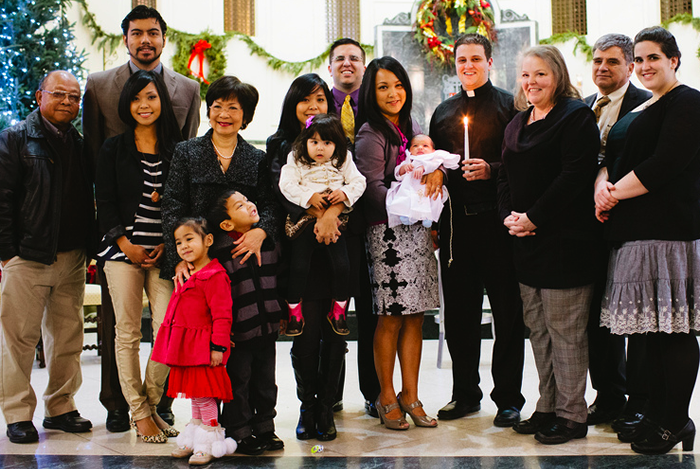
 ENERALLY SPEAKING, I don’t like to share items of a “personal nature” on this Blog, which is dedicated to discussions of sacred music and the Roman liturgy. However, “for every rule, there is an exception,” and this will be an exception. Recently, our son was baptized by His Excellency, the Most Reverend René H. Gracida, Bishop Emeritus of Corpus Christi, TX.
ENERALLY SPEAKING, I don’t like to share items of a “personal nature” on this Blog, which is dedicated to discussions of sacred music and the Roman liturgy. However, “for every rule, there is an exception,” and this will be an exception. Recently, our son was baptized by His Excellency, the Most Reverend René H. Gracida, Bishop Emeritus of Corpus Christi, TX.
Most Reverend Gracida, without question one of America’s most outstanding and distinguished bishops, fought the Nazis in the Second World War, flying 64 combat missions (B-17 bomber) over Germany in 1945. Our son is named after my grandfather—who also fought the Nazis—and who was an outstanding Catholic father.
The day was happy. We were particularly blessed by the presence of family members we love deeply and several of our closest friends. My brother, Mark, was the Godfather, and my sister-in-law, Cathy, was the Godmother. God-willing, Mark will be ordained a transitional Deacon in May. I had not been aware that clerics were allowed to act as Godparents, but recently a friend of mine told me this was perfectly fine. Because the friend who told me this happens to be a special assistant to Pope Benedict XVI, I thought to myself, “Well, that settles the matter!”

“The life of a Church musician is a life of sacrifice.” — words of wisdom from a great theologian
